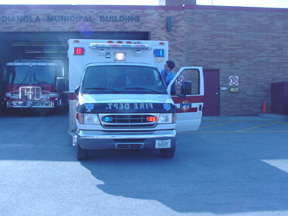Depression may threaten lives of students

April 11, 2002
Every two hours, a young person in the United States between the ages of 15 and 24 dies of suicide.
Such a high occurrence rate explains the fact there have been two suicide attempts by Simpson students in a little over a year. With college students being at a high risk for suicide, it is especially important that students evaluate their lifestyle choices and are familiar with the warning signs for depression, which is often a predecessor to suicide.
Being in college can prove to be a very hectic time in one’s life, and learning to balance activities is important to maintain a healthy mental state.
There are a variety of reasons why students might get depressed, according to counselor Craig Peck.
According to the National Institutes of Mental Health, 15 million Americans suffer from depression every year.
“When you consider the possible stressors that college students have, including mood changes, break ups and death in the family, many of these could be a trigger of depression,” Peck said. “Sometimes students just get overwhelmed with life.”
Also, lifestyle choices involving substance abuse can lead to serious problems, according to Peck.
Peck said that the first step to be taken is talking to somebody about your problems.
Nurse Michelle Cross also agreed with Peck by saying that it’s very stressful to balance hectic schedules including work, school and extra curricular activities, not to mention that some students even have families of their own.
Both Cross and Peck said that depression isn’t isolated to one certain group of people, but some statistics suggest that women may struggle with the problem at a slightly higher rate.
According to a Cognos Report on Depressive Disorders, of those suffering from depression, 66 percent are women. Cross said that a possible reason for this is because of their hormonal changes each month.
The seasonal changing of the weather is another factor that can play a strong role on whether or not one is more likely to be depressed.
“Seasonal effective disorder, or SED, means that you aren’t able to be out in the sun as much and the days are also shorter, which can cause a person to become depressed,” Cross said.
Peck said that a person can do fine nine months a year, but once the days become shorter, they start to feel depressed.
Also, the depression may fluctuate depending on the time of day.
“For some reason, most clinically depressed people are worse in the morning,” Peck said.
Some warning signs that might be prevalent in a person that is depressed include the following: decline in physical appearance, change in the affect of the person, insomnia, hypersomnia, eating disorders, low energy level and decreased concentration, according to Peck.
Peck said another sign of a person becoming depressed is that he or she suddenly loses interest in things that they used to enjoy doing.
“Anybody can have a bad day, but if any of the signs or symptoms are persistent for two weeks, then that person should seek help,” Cross said. “You need to know when to get professional help. We also have referral services and a counselor,” Cross said.
Students can also help each other by being alert in watching for the above-mentioned warning signs.
“If anybody ever says that they’ve thought about suicide you really need to take it seriously,” Cross said.
Although there might be multiple signs of depression, actually preventing depression may be hard.
“Prevention is difficult because we don’t know what’s going to cause it,” Peck said.
Peck said that you need to have a good sense of balance in your life because of the fact that feelings of depression sometimes start by being overwhelmed.
“Don’t take on too much, and if you think you are, then make an appointment,” Peck said.
Talking to others is one way someone who is depressed can help sort through what is bothering them. Shutting down communication with others will quickly increase the danger of the illness.
But, if treated properly, people can go on to live healthy lives. According to a Prozac marketing letter, approximately 33 percent of people suffering from depression seek treatment.
Peck emphasized that depression doesn’t have to be a permanent state.
“Things change and medication can help,” Peck said.
To show that Simpson is concerned about its students, it recently set up a plan that sets out to be proactive in reaching students who may be having problems at school.
“Recently a Crisis Response Team was assembled at Simpson. Our plan is that we should be able to hit most students through Hawley, student development, the registrar, and the chapel,” Peck said.
This team felt that there needed to be a formal process and not let students fall between the cracks, according to Peck.




